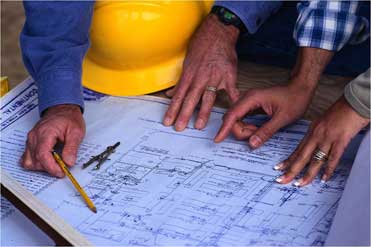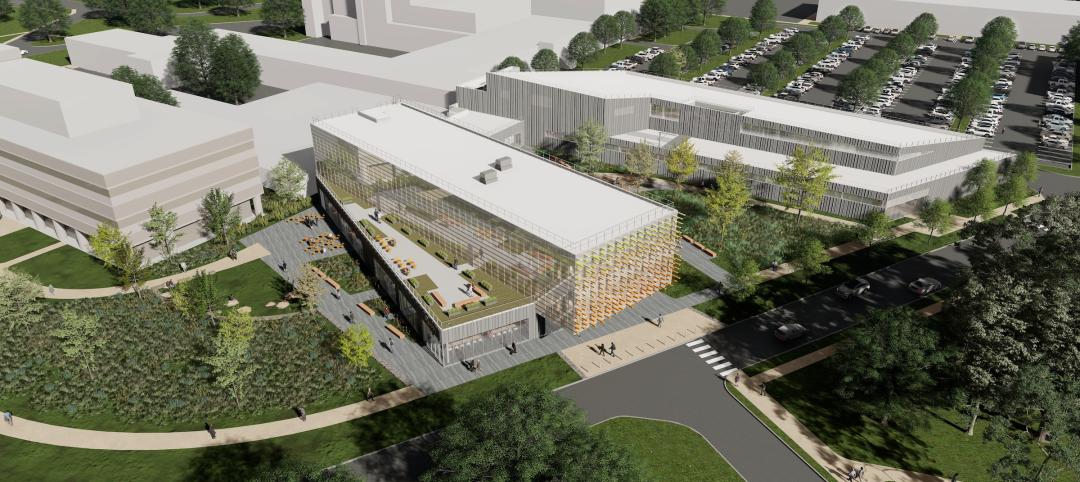Aon Risk Solutions released its 2011 Construction Industry Report, which reflects the input of 60 global construction industry respondents to Aon’s 2011 Global Risk Management Survey. While survey respondents cited senior management’s intuition and experience as the primary method to identify major risks, the report underlines the importance for organizations to embrace an enterprise-wide risk management approach that is optimized on a global basis.
The industry’s top risks as identified by survey respondents are included in the report, with the economic slowdown leading the list. Rounding out the top four risks are increasing competition, damage to reputation/brand and failure to attract or retain top talent. Regulatory/legislative changes and third-party liability tied for the fifth spot.
“In today’s business environment of high supply and limited demand, it has become especially vital for organizations in the construction sector to effectively manage risk,” said Henry Lombardi, executive vice president of Aon Construction Services Group. “Relying exclusively on gut instinct could result in a significant loss as leaders may miss an emerging risk.”
Mary Ann Krautheim, client strategy officer of Aon Construction Services Group, added, “The construction industry is expected to grow by 67 percent by 2020. Business leaders who use an enterprise-wide approach to identifying and assessing risks today will emerge from the economic storm in a stronger position with a larger market share.”
Additional findings of the 2011 Construction Industry Report include:
- Construction companies have invested and committed significant resources to risk control/safety practices to help lower the frequency and severity of loss, and according to the survey, they would like to see recognition of this investment by carriers in the form of lower premiums
- Capacity has been steady over the past three to four years with continued low rates. General liability/third-party liability continues to be a key issue for construction companies, most likely caused by concerns over construction defect claims and court interpretations of insurance coverage available to pay these claims
- Heavy industrial, engineering, procurement and construction contractors continue to enjoy strong backlogs, but are experiencing increased global competition
- While ranked number 11 on the list of top risks, political risk/uncertainties is expected to grow as the construction sector expands into developing countries
- Contractors’ abilities to compete with new project delivery methods, such as public-private partnerships, prove to be a challenge and an opportunity. Many non-U.S. contractors understand the value of bringing equity to the deal. This is a trend expected to continue as public bodies lack resources to invest large sums into infrastructure. BD+C
Related Stories
Women in Design+Construction | May 28, 2024
Commerce Department launches Million Women in Construction Community Pledge
The U.S. Department of Commerce launched its Million Women in Construction Community Pledge this month to boost the ranks of women in construction companies. Federal investments are creating a construction boom that is increasing job opportunities for construction and trade workers.
Laboratories | May 24, 2024
The Department of Energy breaks ground on the Princeton Plasma Innovation Center
In Princeton, N.J., the U.S. Department of Energy’s Princeton Plasma Physics Laboratory (PPPL) has broken ground on the Princeton Plasma Innovation Center (PPIC), a state-of-the-art office and laboratory building. Designed and constructed by SmithGroup, the $109.7 million facility will provide space for research supporting PPPL’s expanded mission into microelectronics, quantum sensors and devices, and sustainability sciences.
MFPRO+ News | May 24, 2024
Austin, Texas, outlaws windowless bedrooms
Austin, Texas will no longer allow developers to build windowless bedrooms. For at least two decades, the city had permitted developers to build thousands of windowless bedrooms.
Resiliency | May 24, 2024
As temperatures underground rise, so do risks to commercial buildings
Heat created by underground structures is increasing the risk of damage to buildings, recent studies have found. Basements, train tunnels, sewers, and other underground systems are making the ground around them warmer, which causes soil, sand, clay and silt to shift, settle, contract, and expand.
Sports and Recreational Facilities | May 23, 2024
The Cincinnati Open will undergo a campus-wide renovation ahead of the expanded 2025 tournament
One of the longest-running tennis tournaments in the country, the Cincinnati Open will add a 2,000-seat stadium, new courts and player center, and more greenspace to create a park-like atmosphere.
Mass Timber | May 22, 2024
3 mass timber architecture innovations
As mass timber construction evolves from the first decade of projects, we're finding an increasing variety of mass timber solutions. Here are three primary examples.
MFPRO+ News | May 21, 2024
Massachusetts governor launches advocacy group to push for more housing
Massachusetts’ Gov. Maura Healey and Lt. Gov. Kim Driscoll have taken the unusual step of setting up a nonprofit to advocate for pro-housing efforts at the local level. One Commonwealth Inc., will work to provide political and financial support for local housing initiatives, a key pillar of the governor’s agenda.
Building Tech | May 21, 2024
In a world first, load-bearing concrete walls built with a 3D printer
A Germany-based construction engineering company says it has constructed the world’s first load-bearing concrete walls built with a 3D printer. Züblin built a new warehouse from a single 3D print for Strabag Baumaschinentechnik International in Stuttgart, Germany using a Putzmeister 3D printer.
MFPRO+ News | May 21, 2024
Baker Barrios Architects announces new leadership roles for multifamily, healthcare design
Baker Barrios Architects announced two new additions to its leadership: Chris Powers, RA, AIA, NCARB, EDAC, as Associate Principal and Director (Healthcare); and Mark Kluemper, AIA, NCARB, as Associate Principal and Technical Director (Multifamily).
MFPRO+ News | May 20, 2024
Florida condo market roiled by structural safety standards law
A Florida law enacted after the Surfside condo tower collapse is causing turmoil in the condominium market. The law, which requires buildings to meet certain structural safety standards, is forcing condo associations to assess hefty fees to make repairs on older properties. In some cases, the cost per unit runs into six figures.

















